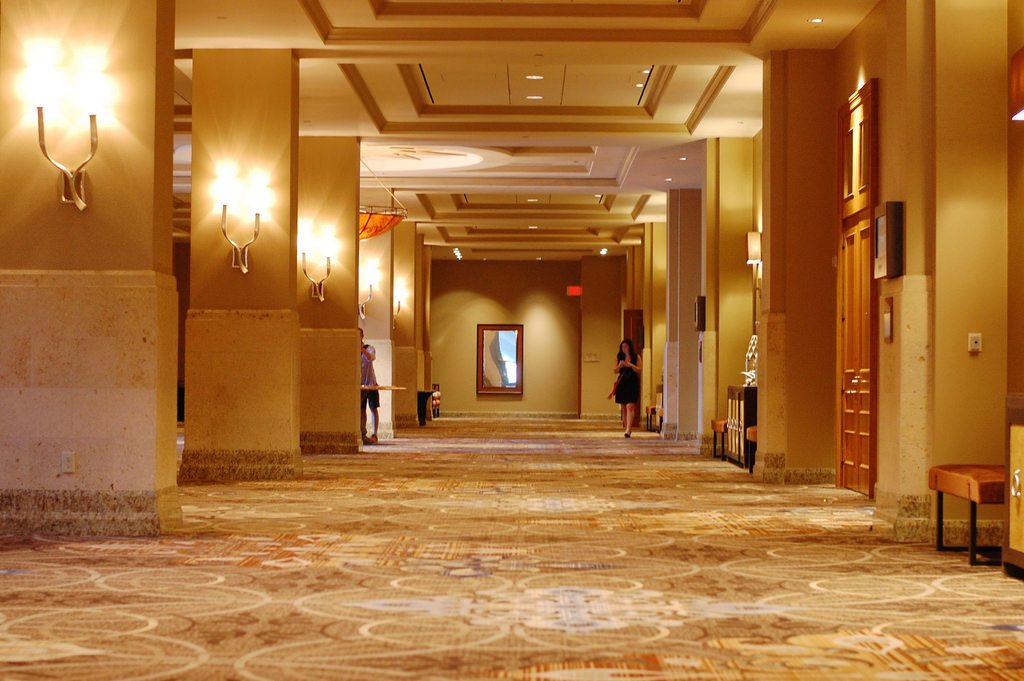Empty Rooms Move Marriott and Other Chains Closer to Flexible Pricing for Corporate Guests

Skift Take
The corporate travel sector could be edging closer to a more dynamic-based approach when it comes to hotel pricing — with Marriott leading the charge.
With supply looking like it will outpace demand for the rest of the year, and well into 2021, travel buyers may gain by switching previous fixed rates over to dynamic rates.
Before the crisis, fixed (or static) rates were useful protecting companies from the peaks in room prices. Budgeting was a lot more easy. However, with rates expected to remain depressed, a contract based on dynamic prices — where travel buyers negotiate a discount on the best available rate on the day — will let them take advantage of the troughs in room prices.
“If we said the rate is flat, and the market changes … I can’t say we’ll pay $200 for a room, but then that room is $100 on the open market,” said Eric Bailey, global travel manager at Microsoft, at HRS’s Corporate Lodging Forum this week.
“We’d lose all credibility from a travel manager perspective. We can put some flat rates in, and keep them, because I understand the industry is hurting … but long term it will be something more dynamic. Even if I wanted to support a hotel, I’m willing to pay this much, but at some point, it doesn’t work if it isn’t what the market rate is.”
Leading the Charge
There's been a lot of debate over whether corporations should leverage a struggling hospitality sector and lock in low rates today, or support it by rolling over their old contracted rates into 2021.
Marriott seems to think a solution lies somewhere in the middle.
"Let’s not spend too much time on negotiating a fixed rate," said Alexander Pyhan, the hotel group’s vice president, distribution, responding to Microsoft's Bailey at the HRS event: “What we are proposing is a simplified process for 2021, where we are actually providing price protection for the corporate buyer, and offering a dynamic discount in the case where the corporate negotiated rate is higher than the daily retail rate.”
The approach is not far off from what Bailey proposed as a principle, Pyhan reckons.
One industry expert said Pyhan’s comments reflect what the hotel industry is already talking about — albeit behind closed doors for now.
“We’re hearing from a number of our corporate clients that they’re being approached by not only Marriott, but other chains, with some new solutions for the remainder of this year and next,” Tripbam CEO Steve Reynolds told Skift.
“All of them revolve around some common themes, which is treat your static rate that you’ve worked so hard to negotiate as a cap. In January, travel buyers were getting a 25-30 percent discount off market rates; now they're getting 2 percent, or maybe even negative discount, because market rates have dropped 35 percent on average.”
Marriott did not respond to Skift for comment.
Market uncertainty will continue for longer than hoped. Hotels are reopening at markedly different paces in the U.S., while second wave fears are leading to some countries being banned from entering others. With this high level of instability, companies remain reluctant to resume any form of business travel.
At the same time, hotel chains are having to factor in extra cleaning costs. One hotel management company estimates the new protocols could collectively cost the hotel industry as much as $9 billion each year in the U.S. alone due to higher frequency cleanings and new materials.
"Across the whole industry, the interplay between suppliers buyers and intermediaries is shifting. Motivations and requirements have been changed,” said Keith Watson, vice president of supply at technology platform Roomex.
“With so little occupancy in the market, demand is not driving pricing. But the high degree of uncertainty means it’s hard to forecast what has happened to the pre-Covid demand patterns. Are events in the future going to happen, how will segments of demand return?"
He thinks Marriott is now preparing for this new normal. "Do a quick, single round of negotiation to establish a basic fixed rate, but have a best available rate discount in place to effectively take advantage of troughs," he said.
Tripbam's Reynolds argues that as the world's biggest hotel operator, Marriott has the capability to react quickly. Last summer, it introduced dynamic pricing for Bonvoy award bookings. "Marriott has that unique technology where they can actually pull that off and add some value. Other brands don’t," he said.
"The other brands and chains are doing something similar, the only difference is they don’t have the ability to float the best available rate down if it drops below the static, so travel buyers have to use their online booking tool and cap rates to make that happen."
Point Of No Return
What's in it for businesses? The obvious answer is the cost savings achieved by taking advantage of lower rates. But how much discount they can negotiate depends on the size of volume travel buyers can roughly commit to, and how much the hotel is willing is to dynamically discount.
Tripbam's Reynolds says travel buyers, regardless of the size of their travel program, have nothing to lose moving to the model. "There’s a lot of my clients trying to figure it out. Hotels are going client by client to educate them on the new way," he said.
However, one travel buyer, who wished to remain anonymous, said they questioned whether it's right for the hotel to be dictating pricing models. Is Marriott flexing its muscles too much, and will travel buyers live to regret it?
"Hotels have been pushing for dynamic chain-wide discounts to replace fixed rates for some time," said Roomex's Watson. "It allows them to better yield by reflecting demand. But by moving to dynamic rates to take advantage of troughs, I wonder if corporates are inadvertently walking away from fixed rates in the long term? When occupancies recover, and corporates will be more interested in protecting against peaks, I doubt hotels will be so willing to return."
But Reynolds disagrees, arguing the ball is in Marriott's court: "They could have just said, sorry, we’re not doing anything, your static rate is stuck and we may not even roll it over to next year. They’re going above and beyond to provide some level of discount for this year, and potentially next."
All eyes should be on Marriott in the coming weeks. As the dominant hotel group, any decisions it makes stand to influence the wider market. Businesses will need to work out just how much flexibility they'll need when restarting corporate travel.
"Where we will be a year from now is, potentially no more static rates, and all deeper, dynamic discounts where you have volume, no blackout dates, no seasonality — all that’s gone, no annual request for proposals. Life gets a lot simpler," Reynolds added.




